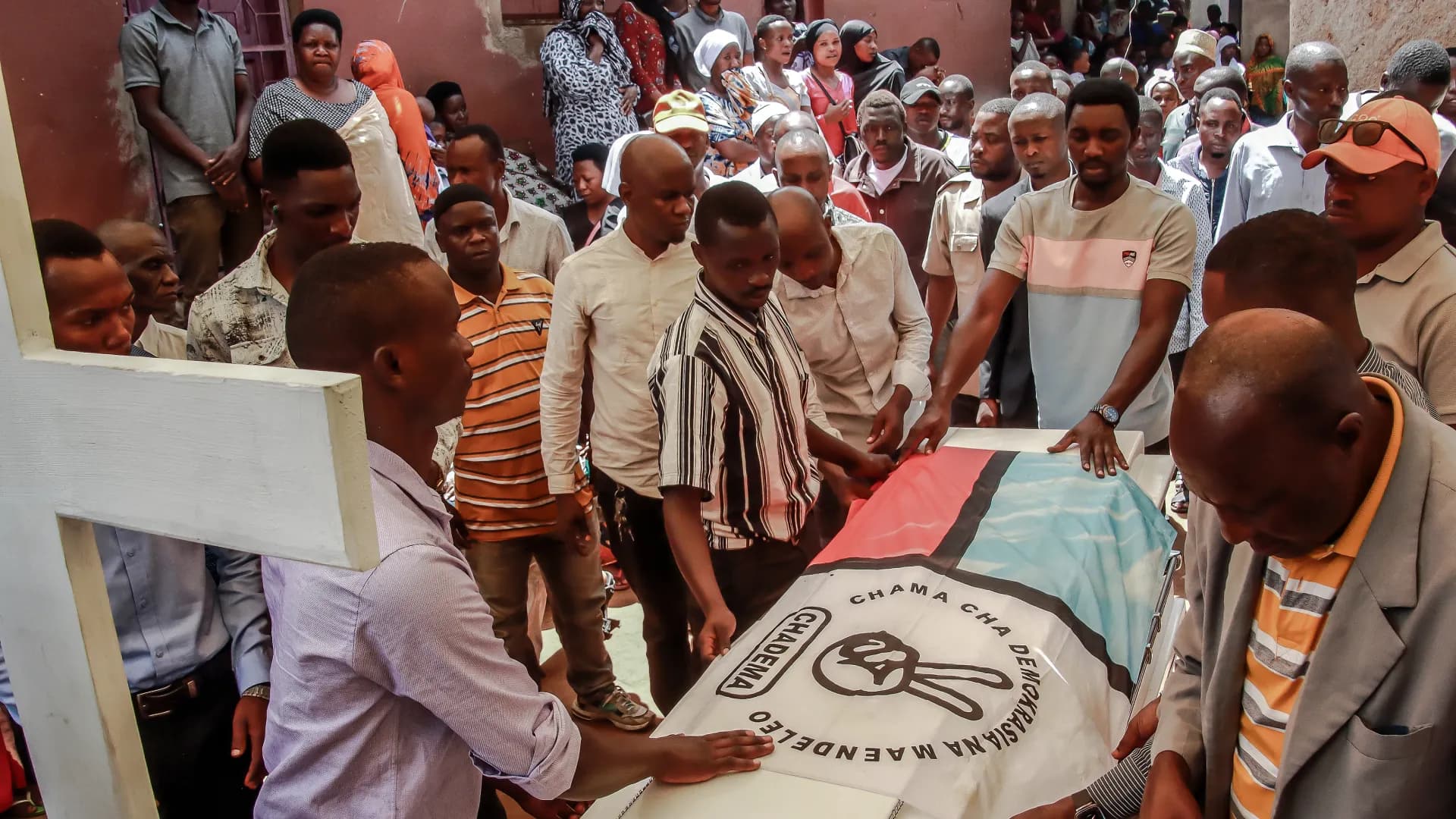We're loading the full news article for you. This includes the article content, images, author information, and related articles.
The move deepens a political crisis in the East African Community partner state, raising alarms in Kenya over regional stability, trade disruptions, and the safety of Kenyan citizens caught in the crackdown.

DAR ES SALAAM – Tanzanian prosecutors have charged at least 145 individuals with treason following violent protests that erupted after the disputed October 29, 2025, general election. The charges, which carry a potential death penalty, mark a severe escalation in the government's crackdown on dissent and have sent shockwaves across the East African region. The political turmoil threatens to destabilize a key regional partner for Kenya, impacting trade, security, and diplomatic relations.
The charges were filed on Friday, November 7, 2025, in Dar es Salaam, according to court documents. The filings accuse the defendants of forming an intention to obstruct the election and intimidate the executive branch of government, manifested through the destruction of state property. This legal action follows a period of intense unrest after incumbent President Samia Suluhu Hassan was declared the winner with an overwhelming 97.66% of the vote. The election was marred by allegations of widespread irregularities, a government-imposed internet shutdown, and a violent state response to demonstrations.
The lead-up to the election was fraught with tension. Major opposition parties, including Chama Cha Demokrasia na Maendeleo (CHADEMA), were effectively sidelined. Its leader, Tundu Lissu, was arrested in April 2025 on treason charges and barred from contesting the polls, a move that human rights organizations described as politically motivated. Amnesty International warned in October 2025 that the political environment was characterized by a “climate of fear” and repression.
Protests broke out on election day, October 29, in major cities including Dar es Salaam, Mwanza, and Arusha. Security forces responded with lethal force, using tear gas and live ammunition to disperse crowds. The exact death toll remains contested. The United Nations has reported at least 10 fatalities, while opposition party CHADEMA claims that more than 1,000 people were killed by security forces. The government has dismissed the opposition's figures as exaggerated without providing its own official count. Human Rights Watch has condemned the “violent and repressive response” and called for accountability for the killings.
The instability in Tanzania has direct and significant consequences for Kenya. On Friday, November 7, 2025, Kenya's Foreign Affairs Minister, Musalia Mudavadi, called on the Tanzanian government to guarantee the safety of the approximately 250,000 Kenyans living and working there. This came after reports of Kenyans being targeted, harassed, killed, or detained in the post-election crackdown. President Hassan's government has blamed “foreign elements” for fueling the violence, a narrative that has increased anxiety among the Kenyan community in Tanzania.
Economically, the crisis has already disrupted regional trade. The Port of Dar es Salaam, a critical gateway for several landlocked countries, experienced significant operational slowdowns, forcing cargo to be diverted to Kenya's Port of Mombasa. Kenya's Trade Cabinet Secretary, Lee Kinyanjui, stated on November 4, 2025, that the tensions were “impeding movement and curtailing investor confidence” across the East African Community (EAC). The instability threatens to undermine years of economic integration and could lead to inflation and diminished growth in the region.
The EAC's response has been criticized as muted. While its observer mission, led by former Ugandan Vice President Dr. Speciosa Kazibwe, called for peace and dialogue, its preliminary statement did not address the widespread reports of violence and electoral malpractice. This contrasts sharply with the African Union's observer mission, which concluded that the election “did not comply with AU principles” and that the process was compromised. The divergence highlights a growing challenge for regional bodies in upholding democratic norms among member states.
As the 145 accused await trial for treason—an offense for which bail cannot be granted and which is punishable by death, though no executions have occurred since 1995—the political future of Tanzania remains uncertain. The government's hardline stance suggests little room for political reconciliation. For Kenya and the wider East African region, the unfolding crisis is a critical test of regional stability, economic resilience, and the collective commitment to democratic governance. Further investigation is required to ascertain the full impact on Kenyan citizens and businesses as the situation develops.
Keep the conversation in one place—threads here stay linked to the story and in the forums.
Sign in to start a discussion
Start a conversation about this story and keep it linked here.
Other hot threads
E-sports and Gaming Community in Kenya
Active 9 months ago
The Role of Technology in Modern Agriculture (AgriTech)
Active 9 months ago
Popular Recreational Activities Across Counties
Active 9 months ago
Investing in Youth Sports Development Programs
Active 9 months ago
Key figures and persons of interest featured in this article